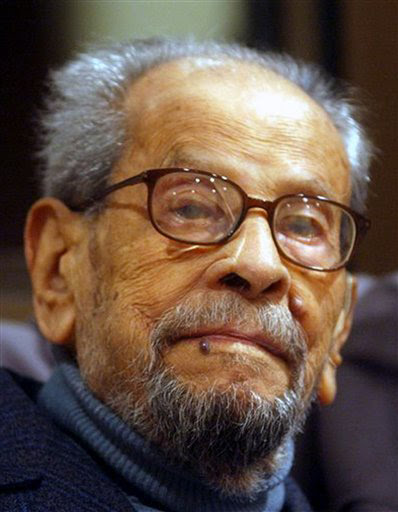Naguib Mahfouz

11 December: NM born to a middle-class Muslim family in Cairo, the city which is the setting for most of his novels.
Egyptian Revolution. Has a profound effect on NM. From the window he often sees British soldiers firing at the demonstrators, men and women. "You could say," he later noted, "that the one thing which most shook the security of my childhood was the 1919 revolution."
Enters Cairo University, studies philosophy.
Publishes article, "The Dying of Old Beliefs and the Birth of New Beliefs"
Decides that literature will be his field and abandons his study of philosophy.
Publishes his first novel, The Mockery of Fate (Abath al-Aqdar).
Enters enters the government bureaucracy, where he will be employed for the next 35 years. Begins at the Ministry of Religious Affairs, but is moved to the Ministry of Culture as the official responsible for the film industry, due to his apparent atheism. Serves later in the Ministry of Mortmain Endowments, then as Director of Censorship in the Bureau of Art, Director of the Foundation for the Support of the Cinema, and finally as a consultant to the Ministry of Culture.
Requests transfer to the Ghuri Library, near his birthplace Gamaliya, where he manages the Good Loan Project, an interest-free loan program for the poor. This is a very happy time for him; he has plenty of opportunity to observe the life of the area and to read western literature, including his favorites: Shakespeare, Conrad, Melville, Flaubert, Stendhal, Tolstoy, Proust, O'Neill, Shaw, Ibsen, and Strindberg.
Revolution by Gamal Abdul Nasser. Mahfouz is disillusioned by the repressive era that follows.
Marries Atiya.
Publishes the Cairo Trilogy.
Publishes Children of Gebalawi (Children of the Alley); fatwa is issued against him.
Retires from civil service.
Begins writing screenplays and film treatments. Over 30 are filmed and released.
Nobel Prize for Literature.
Supports Rushdie, calls Khomeini a terrorist. Another fatwa issued against him.
Survives terrorist attack (stabbed several times in the neck) by Islamic religious fanatics who have targeted him for his criticisms of their fundamentalist ideologies.
30 August: Dies in a Cairo hospital as a result of brain injuries from a fall.